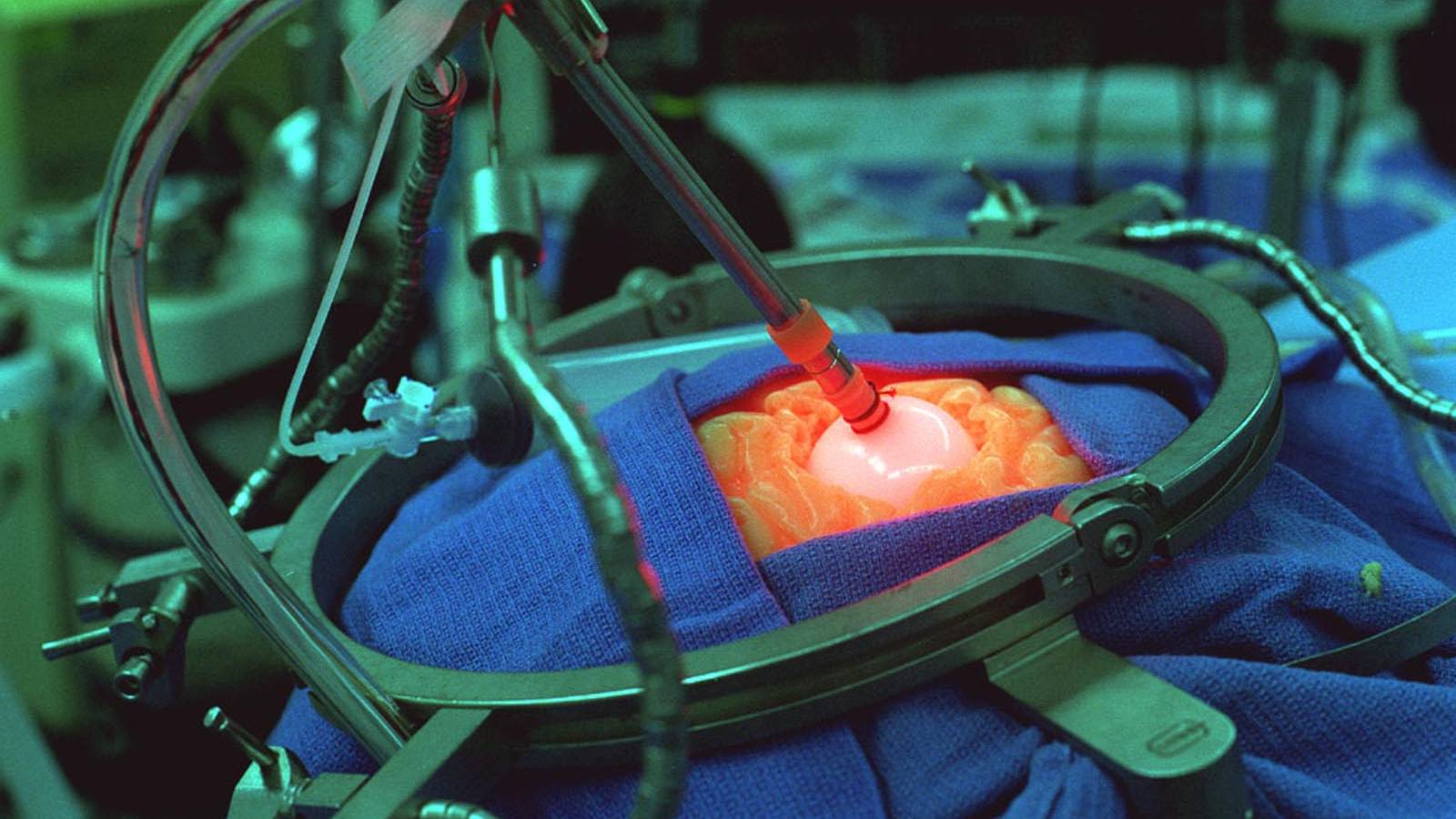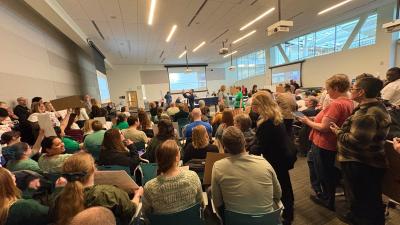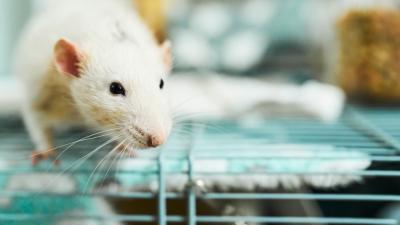Statement from the Physicians Committee on Neuralink’s Purported Patient Implant

On January 29, 2024, Elon Musk claimed on his social media platform X that a patient had received an implant from Musk’s brain-computer interface company Neuralink “and is recovering well.” The statement has not been independently verified. It is important to remember that Musk has a long track record of misleading the public about Neuralink’s supposed developments. In addition, Neuralink has a well-documented history of conducting unnecessary, sloppy experiments in monkeys, pigs, sheep, and other animals that raise serious concerns about the safety of its device. Past experiments revealed serious safety concerns stemming from the device’s invasiveness and rushed actions by company employees. In addition, a significant number of medical devices approved for clinical trials fail to ever make it to the market. As such, the public should continue to be skeptical of the safety and functionality of any device produced by Neuralink.
According to a March 2023 news report, which cited Neuralink employees, the U.S. Food and Drug Administration (FDA) itself “raised safety concerns” related to “device’s lithium battery; the potential for the implant’s tiny wires to migrate to other areas of the brain; and questions over whether and how the device can be removed without damaging brain tissue.”
In addition, Musk’s true intentions for Neuralink are disturbingly clear. He has repeatedly said the goal of the company is “to achieve a symbiosis with artificial intelligence,” which is not necessarily in line with developing treatments for patients.
The Physicians Committee continues to urge Elon Musk and Neuralink to shift to developing a noninvasive brain-computer interface. Researchers elsewhere have already made progress to improve patient health using such noninvasive methods, which do not come with the risk of surgical complications, infections, or additional operations to repair malfunctioning implants. Noninvasive devices are already demonstrating the ability to improve quality of life for older adults and elderly patients, translate brain activity into intelligible speech, and assist paralyzed patients.
“Without more information, it’s impossible to know if Neuralink has achieved anything,” said Ryan Merkley, director of research advocacy at the Physicians Committee. “But we do know that Neuralink has a troubling history of sloppy science and illegal activity. And we know that Musk could help a great number of patients if he would instead develop a noninvasive brain-computer interface.”
The Physicians Committee was the first group to obtain internal records from the University of California, Davis (UC Davis), where Neuralink conducted painful, deadly experiments on monkeys between 2017 and 2020. Many of those records were released to the public by the Physicians Committee in February 2022. Here is a timeline of events since then:
March 2022
In response to the Physicians Committee’s complaint alleging violations of the federal Animal Welfare Act by Neuralink and UC Davis, the U.S. Department of Agriculture (USDA) inspected both facilities. The agency has a well-documented history of failing to hold violators accountable, and its inspections of Neuralink and UC Davis continued that trend. However, USDA Secretary Tom Vilsack later confirmed to Congress that a violation of the law did occur—except it was wiped away due to a now-forbidden agency policy designed to remove such incidents from public records.
The August 2019 incident involved a male rhesus macaque identified only as “Animal 8” by UC Davis. According to records obtained by the Physicians Committee for Responsible Medicine through a public records lawsuit against UC Davis, a company neurosurgeon drilled two holes in Animal 8’s skull, implanted electrodes in his brain, and used bone screws to attach electronics to his head. The holes were then filled with a surgical adhesive called BioGlue. Soon thereafter, Neuralink and UC Davis staff killed Animal 8. BioGlue had never been approved for use in the experiment, which is a serious violation—or “noncompliance” in USDA’s language—of the Animal Welfare Act.
Vilsack did not address an earlier, even more troubling incident involving BioGlue. In September 2018, a Neuralink neurosurgeon drilled into the skull of a female rhesus macaque known only as “Animal 21” and filled holes with the adhesive. The next day, she lost coordination and balance, experienced paralysis in both legs and was suffering from “depression.” The day after that, she was seen “gasping/retching” and “collapse[d] from exhaustion/fatigue.” When staff finally euthanized her and conducted a necropsy, they discovered BioGlue was “covering and compressing a large area of the left cerebrum” and blood had built up on the surface of her brain. They also found “acute” ulcers in her esophagus “likely due to vomiting” and blood in her stomach. BioGlue had never been approved for use in the study, and it remains unclear why USDA did not cite Neuralink and UC Davis for this serious violation. It is also unclear why USDA found the September 2018 use of BioGlue to be a violation but not the August 2019 use.
September 2022
Filings related to a public records lawsuit by the Physicians Committee against UC Davis revealed the university possesses 371 photographs related to monkey experiments conducted by Neuralink. Yet the university’s attorneys argued that the images should not be released because the public would misunderstand them. As of the date of this statement, the public records lawsuit is ongoing.
December 2022
Reuters reported that Neuralink was under investigation USDA and the U.S. Department of Justice (DOJ) for animal welfare violations. The investigation also revealed that Neuralink had killed more than 1,500 animals in experiments and employees were concerned that many experiments had been rushed. According to Reuters, an employee “wrote an angry missive earlier this year to colleagues about the need to overhaul how the company organizes animal surgeries to prevent ‘hack jobs.’ The rushed schedule, the employee wrote, resulted in under-prepared and over-stressed staffers scrambling to meet deadlines and making last-minute changes before surgeries, raising risks to the animals.” As of July 2023 and November 2023, neither USDA nor DOJ, respectively, would confirm or deny the existence of investigations.
December 2022
Members of Congress wrote to USDA to raise animal welfare concerns about Neuralink and urge greater oversight of the company.
February 2023
New records obtained by the Physicians Committee from UC Davis revealed that Neuralink may have violated federal hazardous materials laws by transporting infectious pathogens from “infected” monkeys without safely packaging them. In one email, from 2019, a UC Davis employee wrote to Neuralink: “Since the hardware components of the explanted neural device are not sealed and it was not disinfected prior to leaving the [university], this presents a hazard for anyone potentially coming in contact with the device. Simply labeling it ‘hazardous’ doesn’t account for the risk of potentially contracting Herpes B.” Later, a UC Davis employee wrote that “devices had made their way back [to the university] in an open box,” emphasizing: “we are making a big deal about this because we are concerned for human safety.” The Physicians Committee provided the records to the U.S. Department of Transportation (DOT), which launched an investigation. (See January 2024 below for further updates on this.)
May 2023
Reuters reported that Neuralink’s internal panel which oversees animal experiments was “rife with potential conflicts,” raising “questions about potential violations of conflict-of-interest regulations,” according to bioethicists.
September 2023
Following false claims by Elon Musk about the deaths of monkeys, the Physicians Committee asked the U.S. Securities and Exchange Commission (SEC) to investigate Musk and Neuralink for possible securities fraud, pointing out that he may be deliberately misleading investors.
October 2023
WIRED reported disturbing details about Neuralink’s monkey experiments and how the company works to keep photos of those experiments secret.
November 2023
U.S. lawmakers also asked SEC to investigate Musk and Neuralink for securities fraud.
January 2024
Public records reveal that DOT fined Neuralink for violations of federal hazardous materials laws. The fines stemmed from the investigation launched after the Physicians Committee’s February 2023 complaint.
Founded in 1985, the Physicians Committee for Responsible Medicine is a nonprofit organization that promotes preventive medicine, conducts clinical research, and encourages higher standards for ethics and effectiveness in education and research.







